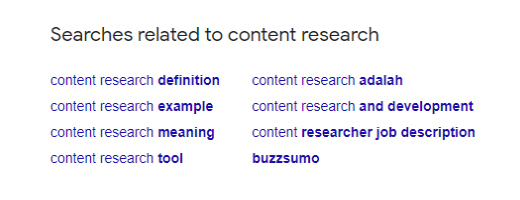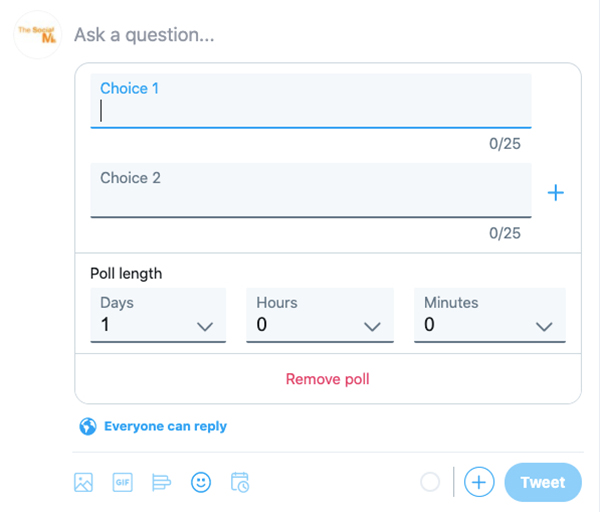Home » Content Marketing » Best Content Research Tips to Help You Think Outside the Box

Best Content Research Tips to Help You Think Outside the Box
Whichever way you look at it, one thing is certain: the rate of content consumption is at an all-time high and will only continue to rise.
On the one hand, there couldn’t be a better time to be a content creator, marketer, or strategist. But on the other, there’s never been a greater need to formulate, package, and disseminate content carefully.
After all, readers are looking for value above all else.
In a rapidly changing world where consumer needs and preferences seem to shift as soon as you blink, your content must possess three fundamental properties:
- Authority
- Relevance
- Trust
Lacking these traits, your content risks tumbling to the depths of oblivion.
So what can you do about it? The answer lies in your content research. This is the make-or-break factor determining how well your target audience (and search engines) receive your content.
Following are the best content research tips to help you think outside the box:
- Let Google be your guide
- Use powerful tools (detailed below)
- Scour social media for insight
Let’s examine each tool at length. But before we do, remember that it’s essential to start by defining your goals.
1: Start With a Google Search

Source: wikimedia
Google is the most widely used search engine. As of July 2020, Google accounted for nearly 90 percent of the search engine market.
Behind its clean, easy-to-use interface lies a powerful algorithm. This allows the search engine to rank pages with the most authority on any given topic at the top of relevant search results.
This doesn’t mean that Google is without its faults, however. First, it’s important to take note of the paid search ad content. While these results may rank highly, their motivations are more commercial. You’ll want to scroll past these to find the more substantial material.
On occasion, you might find that the first page results don’t offer what you’re searching for. To get around this, don’t limit yourself to the first page alone.
Try other search pages and you could come across additional valuable content to work with. You can also tweak your search query to improve your chances of deriving better results.
2: Harness the Power of Related Searches

Screenshot from: google.com
Google’s related search suggestions are a great way to identify topics of great interest. Going over them enables you to achieve the following:
- Find additional valuable resources. These can be of benefit to you in your content research process or to your target audience.
- Establish the user intent behind the search. Doing so will help you develop content that has a high chance of resonating with your reader.
- Cover the topic with greater depth. Related searches indicate varied aspects of a given topic. They’ll allow you to touch on more sides of the area your content seeks to cover.
3: Scour Social Media for Insight
Social media can provide you with an extensive range of information to build your content upon. Thanks to the wide variety of social media platforms and their unique features, your research is bound to benefit from a significant boost.
Run Twitter Polls

Source: blog.thesocialms.com
Running a poll on Twitter is an easy way to quickly gather feedback on an issue. Simply start by composing a new tweet.
Select the poll option, input your query and desired responses, and set the duration you want your poll to run for.
Once you’re done, press ‘Tweet’ and watch the responses trickle in.
Evaluate Hashtags
Need content ideas and need them fast? Then hashtags will come in handy. Twitter is easily the best social media platform for this purpose.
Given that hashtags come and go in rapid succession, monitoring them is the perfect way to remain in the loop.
Evaluating hashtags allows you to deliver content that meets immediate needs. Moreover, it enables you to identify and tap into trending topics.
Use Hashtagify to save time on this.
Follow Influencers
When engaging in content research, one group of people may prove to be an invaluable resource — influencers.
Each industry has certain notable personalities known for their expertise and authority. Regardless of what content you’d like to create, there’s always a figure or two you can turn to.
Go over popular social media accounts, review interviews they’ve given, and read their latest posts on your topics of interest.
4: Turn to Research Reports and Similar Resources

Screenshot from: core.ac.uk
If you ever hit a block trying to develop content ideas, turn to others for inspiration.
Research reports present an ideal way to obtain insight and ideas. The data therein has been collected, analyzed, and interpreted to high standards. All you need to do is build upon it.
Besides reports, you can also search for:
- Case studies
- White papers
- Infographics
- Journal articles
The easiest way to obtain these is via a quick search on Google. Using the keyword “scholarly” can help fetch better results, as it filters out content that doesn’t match the outlined criteria.
That said, a significant portion of the research resources you’ll come across are only accessible with a subscription. More often than not, these payments tend to be on the higher side.
You may benefit from an institutional or organizational subscription. If this is unavailable, don’t fret. There are still ways of accessing the information you need.
One of these is by visiting databases that function on an open-access basis. These kinds of databases allow you to obtain the research material they host at no cost.
Furthermore, there is an abundance of research material in your search results that is available free of charge.
5: Use These Powerful Tools
Through the course of your content research process, there are many great tools to help you along the way.
They’ll save you a great deal of time and reduce the hassle of brainstorming and developing your content marketing strategy.
MozBar — MozBar is a browser plugin available on Mozilla Firefox and Google Chrome. It performs site audiences so you can pick up on issues and resolve them as they arise.
Moreover, it tracks site visits and analyzes your site and those of your competitors, offering informative metrics.
Ubersuggest — This keyword research tool performs extensive keyword analysis to give you lots of high-quality ideas. It scans a high volume, helping match keywords to your needs.
BuzzSumo — Since launching in 2014, BuzzSumo has become an impressive content analysis tool. It comes in handy in content research owing to its capacity to help you establish how your competitors are engaging with their audiences.
The Bottom Line: You Don’t Need to Lose Sleep to Craft Great Content
Having gone over the best content research tips highlighted above, you’re all set to embark on content ideation.
The right tools and techniques can help you work smarter and with greater ease. As a result, content research doesn’t have to be a daunting, time- and energy-intensive experience.
As technology continues to advance, you can expect content research to become even easier.
But that’s not all.
Like any other field, content marketing has experts that know the business inside out. If you find yourself short on time or in need of delivering a lot of content, there’s a way around this.
You can have quality content created by reputable content marketing experts whenever the need arises. They know the best approach to plan, research, and optimize your content in line with your content marketing strategy.
Empowered with this knowledge, nothing stands in the way of you and great content.
CopySmiths
I'm Katrina McKinnon, founder of CopySmiths and Small Revolution. In my 20 years of experience, I have helped online businesses create high-performing content specifically on an eCommerce store's blog. Find me on LinkedIn and Twitter.

CopySmiths offers the best blog writing services for online stores.
If you'd like us to write blog articles for you, click here.
Most Recent
- 3 Bold Questions You Should Ask When Hiring A Content Writer

- 5 Practical Reasons You Should Use a Blog Post Template

- 4 Amazing Benefits of Using a Title Generator for New eCommerce Blogs

- 10 Awesome Bio Examples Your Online Store Blog Should Emulate

- 8 Basic Steps to Successful Content Development Every Time

Podcasts
Got a question?
Ask our friendly team about our article writing services.
Subscribe to CopyZine
Monthly, hand-picked stories of the best in eCommerce Content.




